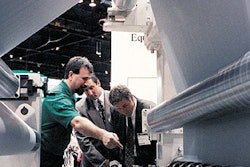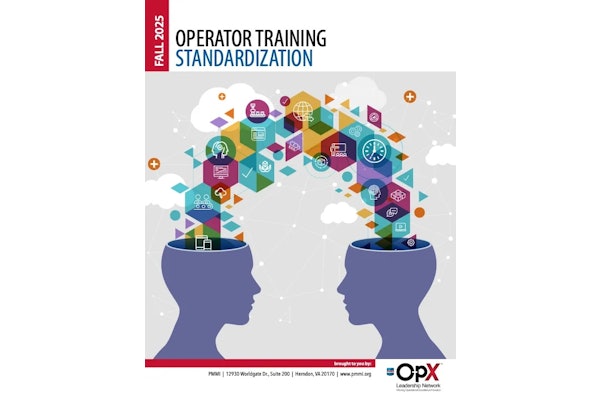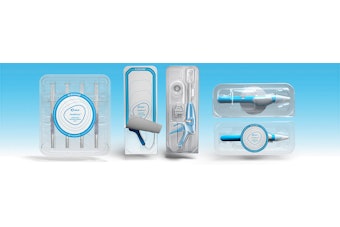If you are a packager of dietary supplements, you may have a strong reaction to the new Food and Drug Administration regulations setting current Good Manufacturing Practices (cGMP) requirements for these products. These regulations were announced by the FDA in late June and can be found in 21 CFR Part 111.1 – 111.610.
As a maker of these products, you might welcome the level playing field among supplement companies that these new manufacturing controls can bring, as well as the higher consumer confidence in products of this type that may follow from more consistent quality. Or, you may resent the rules’ irritating new burdens in procedures and record keeping.
If you are a packager of drug products that compete with supplements, though, you might have a different reaction that’s equally strong. The gist of your reaction might well be, “It’s about time!” It’s bad enough, from your perspective, that dietary supplements got the power back
in 1994 to make claims about their effects on health that before then were almost exclusively permitted for drugs. It’s bad enough that supplement products got that ability without having to go through the time, expense, and stress of getting premarketing approval for new supplements the way new drugs must.
But on top of that, supplements were not required by regulations to follow cGMPs the way drugs were. The FDA was supposed to make regulations to require supplement cGMPs, said the 1994 law, but until the end of August 2007, those regulations were not in place. In all these years, of course, there were cGMPs that industry voluntarily developed and followed that helped assure that its products contained just what they should and weren’t contaminated with outside substances.
Sure, there were also examples of supplement products that were subpotent or had contamination problems that cGMP controls might have averted. But the supplement industry knew its emerging industry needed to win over the public to convince it that its quality and reliability were high.
And cGMPs are designed to assure just those things: that product quality is as it should be, and that the product is made right the first time, every time.
So now they are here, and they are effective for large companies beginning next June. For those who manufacture or otherwise handle dietary supplements, there are requirements for personnel, design, and construction of physical plants, cleaning, manufacturing operations, quality-control procedures, testing of incoming and in-process articles as well as finished products, handling consumer complaints, and keeping records.
Specific provisions within the cGMP regulations specify required procedures with respect to packaging, including inspection of incoming containers and labeling as well as the accompanying paperwork. Essentially, you need to treat packaging and labeling as you would other incoming components or dietary supplements: quarantine, sample and inspect, and get Quality Control personnel’s approval before releasing for use. Similar controls are required if you handle finished supplements for packaging or labeling. New regulations also specify that written procedures must be made and kept relating to these steps, and other records you recieve on components, packaging, and labeling.
The rule is being phased in for small businesses. While large companies need to comply starting in June 2008, the date is June 2009 for companies with fewer than 500 employees, and June 2010 for those with fewer than 20 employees.
Drug and medical device products have long followed more extensive cGMP requirements than those for foods. However, when the law was changed in 1994—first to define supplements as foods, and second, to give supplements the ability to make drug-like claims of health benefits—Congress recognized it would be a good idea to have the FDA impose regulations controlling the way they are made, to assure they are what they claim, and that they are safe.
This was perhaps seen as especially important since the products would not be reviewed and approved by the FDA before hitting the market. Good idea, but it took 13 years to be put into final regulations.
Finally, as meaningful and possibly burdensome as these new regulations will be to dietary supplement manufacturers and packagers, they are all behind-the-scenes, unlike the commonly prominent claims about effects on the structure or function of the body for which supplements are known. If cGMPs do their job right, then dietary supplement products will be perfectly made, they will be free of contaminants, and they will be packaged and labeled correctly the first time, every time. We shall see whether this new batch of regulations has the intended effect.
By Eric Greenberg, Attorney-at-Law www.ericfgreenbergpc.com [email protected]
As a maker of these products, you might welcome the level playing field among supplement companies that these new manufacturing controls can bring, as well as the higher consumer confidence in products of this type that may follow from more consistent quality. Or, you may resent the rules’ irritating new burdens in procedures and record keeping.
If you are a packager of drug products that compete with supplements, though, you might have a different reaction that’s equally strong. The gist of your reaction might well be, “It’s about time!” It’s bad enough, from your perspective, that dietary supplements got the power back
in 1994 to make claims about their effects on health that before then were almost exclusively permitted for drugs. It’s bad enough that supplement products got that ability without having to go through the time, expense, and stress of getting premarketing approval for new supplements the way new drugs must.
But on top of that, supplements were not required by regulations to follow cGMPs the way drugs were. The FDA was supposed to make regulations to require supplement cGMPs, said the 1994 law, but until the end of August 2007, those regulations were not in place. In all these years, of course, there were cGMPs that industry voluntarily developed and followed that helped assure that its products contained just what they should and weren’t contaminated with outside substances.
Sure, there were also examples of supplement products that were subpotent or had contamination problems that cGMP controls might have averted. But the supplement industry knew its emerging industry needed to win over the public to convince it that its quality and reliability were high.
And cGMPs are designed to assure just those things: that product quality is as it should be, and that the product is made right the first time, every time.
So now they are here, and they are effective for large companies beginning next June. For those who manufacture or otherwise handle dietary supplements, there are requirements for personnel, design, and construction of physical plants, cleaning, manufacturing operations, quality-control procedures, testing of incoming and in-process articles as well as finished products, handling consumer complaints, and keeping records.
Specific provisions within the cGMP regulations specify required procedures with respect to packaging, including inspection of incoming containers and labeling as well as the accompanying paperwork. Essentially, you need to treat packaging and labeling as you would other incoming components or dietary supplements: quarantine, sample and inspect, and get Quality Control personnel’s approval before releasing for use. Similar controls are required if you handle finished supplements for packaging or labeling. New regulations also specify that written procedures must be made and kept relating to these steps, and other records you recieve on components, packaging, and labeling.
The rule is being phased in for small businesses. While large companies need to comply starting in June 2008, the date is June 2009 for companies with fewer than 500 employees, and June 2010 for those with fewer than 20 employees.
Drug and medical device products have long followed more extensive cGMP requirements than those for foods. However, when the law was changed in 1994—first to define supplements as foods, and second, to give supplements the ability to make drug-like claims of health benefits—Congress recognized it would be a good idea to have the FDA impose regulations controlling the way they are made, to assure they are what they claim, and that they are safe.
This was perhaps seen as especially important since the products would not be reviewed and approved by the FDA before hitting the market. Good idea, but it took 13 years to be put into final regulations.
Finally, as meaningful and possibly burdensome as these new regulations will be to dietary supplement manufacturers and packagers, they are all behind-the-scenes, unlike the commonly prominent claims about effects on the structure or function of the body for which supplements are known. If cGMPs do their job right, then dietary supplement products will be perfectly made, they will be free of contaminants, and they will be packaged and labeled correctly the first time, every time. We shall see whether this new batch of regulations has the intended effect.
By Eric Greenberg, Attorney-at-Law www.ericfgreenbergpc.com [email protected]



















